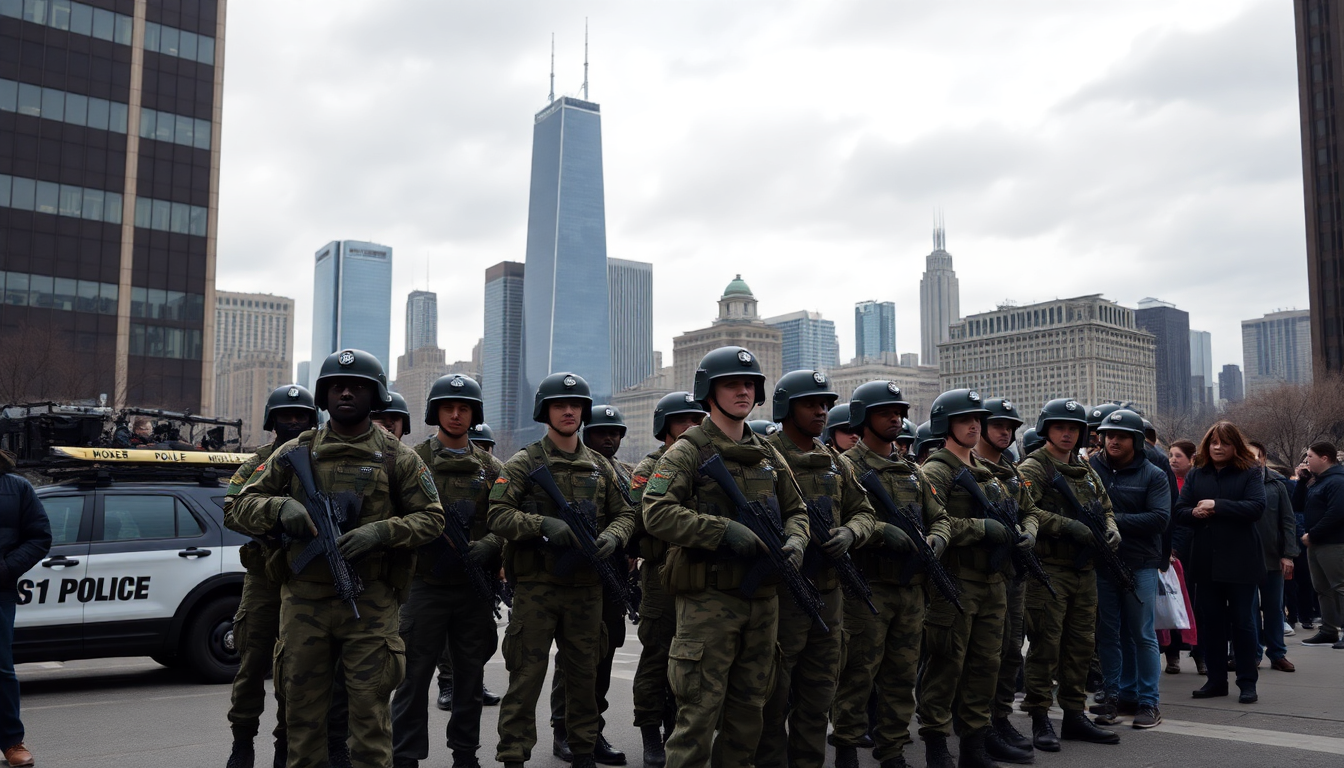Table of Contents
The political landscape in Chicago is heating up as former President Donald Trump considers deploying the National Guard to tackle crime in the city. This move has sparked a heated debate between Trump and Illinois Governor JB Pritzker, who argues that such an action would be unnecessary and driven by political motives. But what does this debate really say about crime management and the balance of power between federal and local governments?
Context of the National Guard Consideration
The idea of sending National Guard troops to Chicago comes amid ongoing concerns about crime rates. Just last week, Governor Pritzker made it clear that he does not believe Chicago is facing a crime emergency that justifies federal intervention. He accused Trump of politicizing the issue and using it as a distraction from his administration’s challenges. This situation highlights a crucial tension between state and federal powers, especially when it comes to public safety.
Pritzker’s position is backed by some encouraging data—violent crime rates in Chicago have actually declined over the past year. Homicides and robberies have reportedly dropped by more than 30%, while shootings have seen a nearly 40% decrease. This evidence challenges the narrative of a crime wave, suggesting that local strategies might be making a positive impact. Isn’t it fascinating how data can reshape the conversation around crime?
Political Ramifications and Responses
The back-and-forth between Trump and Pritzker has ramped up tensions, with both sides exchanging pointed criticisms. Pritzker took to social media to assert his commitment to preventing the National Guard from being used as a tool of intimidation against Chicago residents. He labeled the potential deployment as “unconstitutional” and “un-American,” framing it as an overreach of presidential power that could worsen the relationship between law enforcement and the community. Can you imagine how this could affect trust in the authorities?
Chicago Mayor Brandon Johnson echoed these sentiments, warning that a poorly coordinated federal response could damage the essential trust between the community and the police. He emphasized that law enforcement should focus on collaboration rather than confrontation—especially in a city already dealing with complex social issues. What’s the best way to foster that trust in such a challenging environment?
Future Implications and Observations
This ongoing dispute raises important questions about the future of crime management strategies in urban areas and the appropriateness of federal intervention. As local leaders push for more autonomy in public safety matters, the implications of Trump’s proposed actions could set a significant precedent for how similar situations are addressed nationwide.
Moreover, the political ramifications of this issue extend well beyond Chicago. The way crime and safety are discussed will likely play a crucial role in upcoming elections, shaping public opinion and voter sentiment as leaders position themselves as either defenders of local autonomy or advocates for federal support. In this charged atmosphere, how will local governments navigate the complexities of crime while preserving community integrity?
As we continue to watch these developments unfold, the focus remains on finding effective ways for local governments to tackle crime while ensuring that any federal assistance respects their authority and the needs of their communities.


